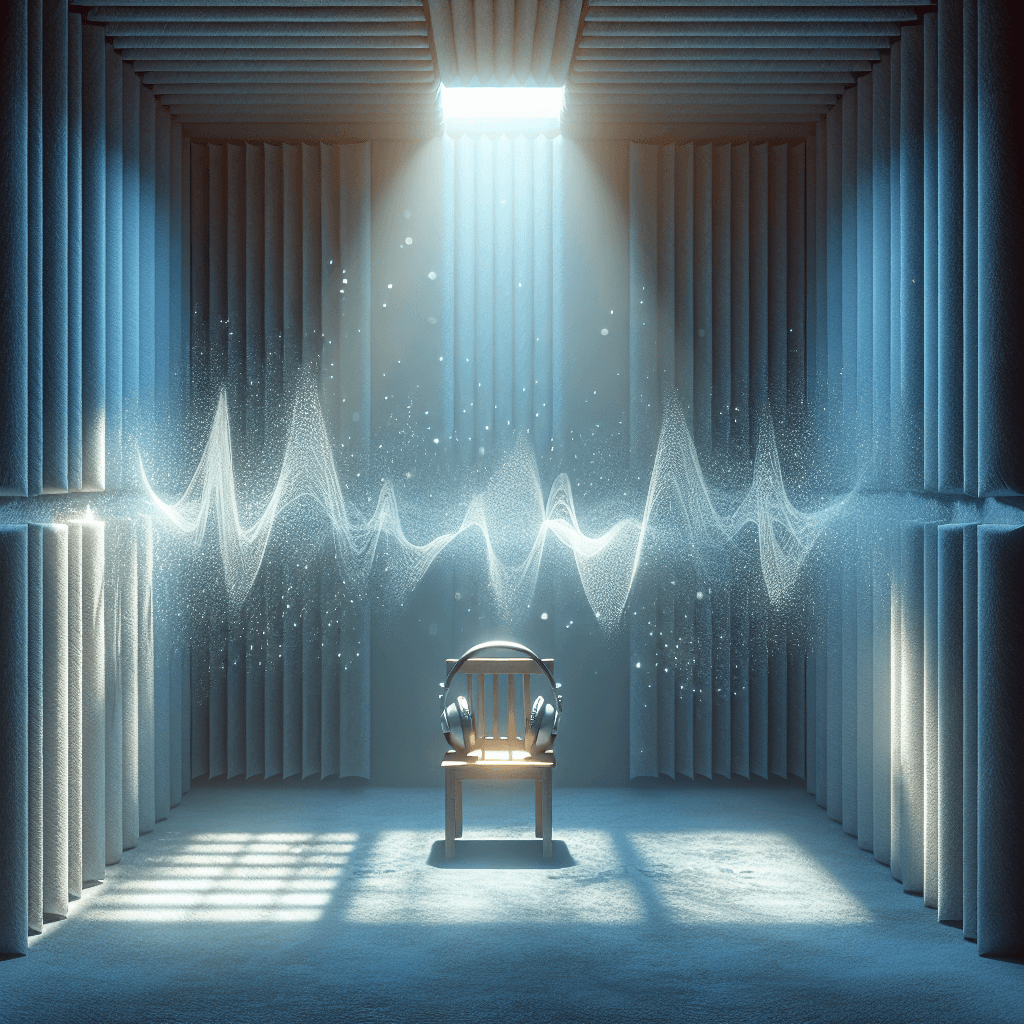The Paradox of Quiet: Why Intense Silence Can Feel Deafeningly Loud
Ever craved silence only to find it overwhelmingly loud? This isn't just a poetic phrase; it's a fascinating interplay between your auditory system and your brain's perception.


Too Long; Didn't Read
In the absence of external noise, your brain can amplify its own internal signals, creating the perception of a loud ringing or hum that we call 'deafening silence'.
The Paradox of Quiet: Why Can Intense Silence Sometimes Feel Deafeningly Loud?
Have you ever craved absolute silence, only to find that when you finally achieve it, the quiet itself feels overwhelmingly loud, almost like a ringing in your ears? This common yet perplexing experience, often described as "deafening silence," isn't just a poetic turn of phrase. It's a fascinating interplay of our auditory system, brain processing, and psychological perception. This post will delve into the science behind why intense silence can paradoxically feel so loud, exploring how our ears and brain conspire to fill the void.
The Brain's Constant Vigil: Understanding Auditory Gain
Our auditory system is an incredibly sensitive piece of biological engineering, constantly scanning the environment for sound. It's not designed for absolute nothingness. Think of it like an automatic volume control on a microphone. When external sounds are plentiful, the brain doesn't need to work too hard to process them. However, when you enter an intensely quiet environment, your brain's auditory pathways essentially turn up their internal "gain" or sensitivity.
Scientists explain this phenomenon, known as auditory gain, as the brain's attempt to detect any faint sounds that might still be present. Your auditory neurons become more excitable. This heightened sensitivity means that even the slightest internal neural activity, which is always present but usually masked by external noise, can suddenly be perceived as much louder. It’s similar to how your eyes become more sensitive to light in a dark room – your auditory system adapts to the lack of external stimuli by amplifying what little input it receives, or even its own baseline activity.
Unmasking the Inner Soundscape: Tinnitus and Bodily Noises
For many, the "loudness" of silence is actually the unmasking of internal sounds.
The Spotlight on Tinnitus
Tinnitus, often described as a ringing, buzzing, hissing, or clicking in the ears, affects a significant portion of the population. In many cases, mild tinnitus goes unnoticed amidst the daily cacophony of life. However, when external sounds disappear, this internal "phantom" noise is no longer masked. The silence doesn't cause the tinnitus, but it brings it to the forefront of our perception, making it seem suddenly louder and more intrusive. The contrast between the quiet environment and the internal sound can be quite stark.
Hearing Yourself, Literally
In profound silence, we can also become acutely aware of our own somatic sounds – the noises produced by our own bodies. These can include:
- Your heartbeat
- The sound of your breathing
- Gurgling from your digestive system
- Even the whooshing sound of blood flowing through vessels near your ears (a form of pulsatile tinnitus for some)
These internal sounds are always there, but the ambient noise of everyday life typically drowns them out. When that external noise is stripped away, these subtle bodily orchestrations can step into the limelight, contributing to the feeling of a "loud" silence.
The Psychology of Silence: Expectation and Attention
Our psychological state also plays a crucial role in how we perceive silence.
The Brain Abhors a Vacuum
Our brains are pattern-seeking machines, constantly trying to make sense of sensory input. When faced with a complete lack of auditory stimuli – a sensory vacuum – the brain can sometimes struggle to process this absence. Some theories suggest that in the absence of external sound, the brain might even over-interpret minimal residual neural activity or even "generate" perceptual experiences to fill the void.
Shift in Attentional Focus
In a noisy environment, our attention is naturally drawn outwards. In intense silence, our attentional focus tends to shift inwards. This heightened internal awareness can amplify our perception of subtle internal sounds or sensations that we would otherwise ignore. If you're actively listening for silence, or if the silence is unexpected or unsettling, your heightened state of alert can make any perceived sound seem more significant.
Extreme Silence: The Anechoic Chamber Effect
The most extreme example of this phenomenon can be found in anechoic chambers – rooms designed to absorb all sound reflections, creating an environment of near-total silence. People who have spent time in these chambers report not only hearing their heartbeat and breathing with startling clarity but also, in some cases, experiencing auditory hallucinations. This occurs because, deprived of external input, the brain may start to generate its own sounds. For instance, the famous Orfield Laboratories' anechoic chamber in Minneapolis holds the Guinness World Record for the quietest place on Earth, and its founder, Steven Orfield, noted that "When it's quiet, ears will adapt. The quieter the room, the more things you hear."
In conclusion, the sensation of "deafening silence" is not your imagination running wild. It's a complex physiological and psychological response to an absence of external sound. Your brain's auditory system ramps up its sensitivity (auditory gain), previously masked internal sounds like tinnitus or bodily functions become prominent, and your psychological focus shifts inward. Understanding these mechanisms reveals just how active and adaptive our brains are, constantly working to interpret the world around us – even when that world goes quiet. So, the next time silence feels loud, remember it’s a testament to the intricate workings of your own perception.


